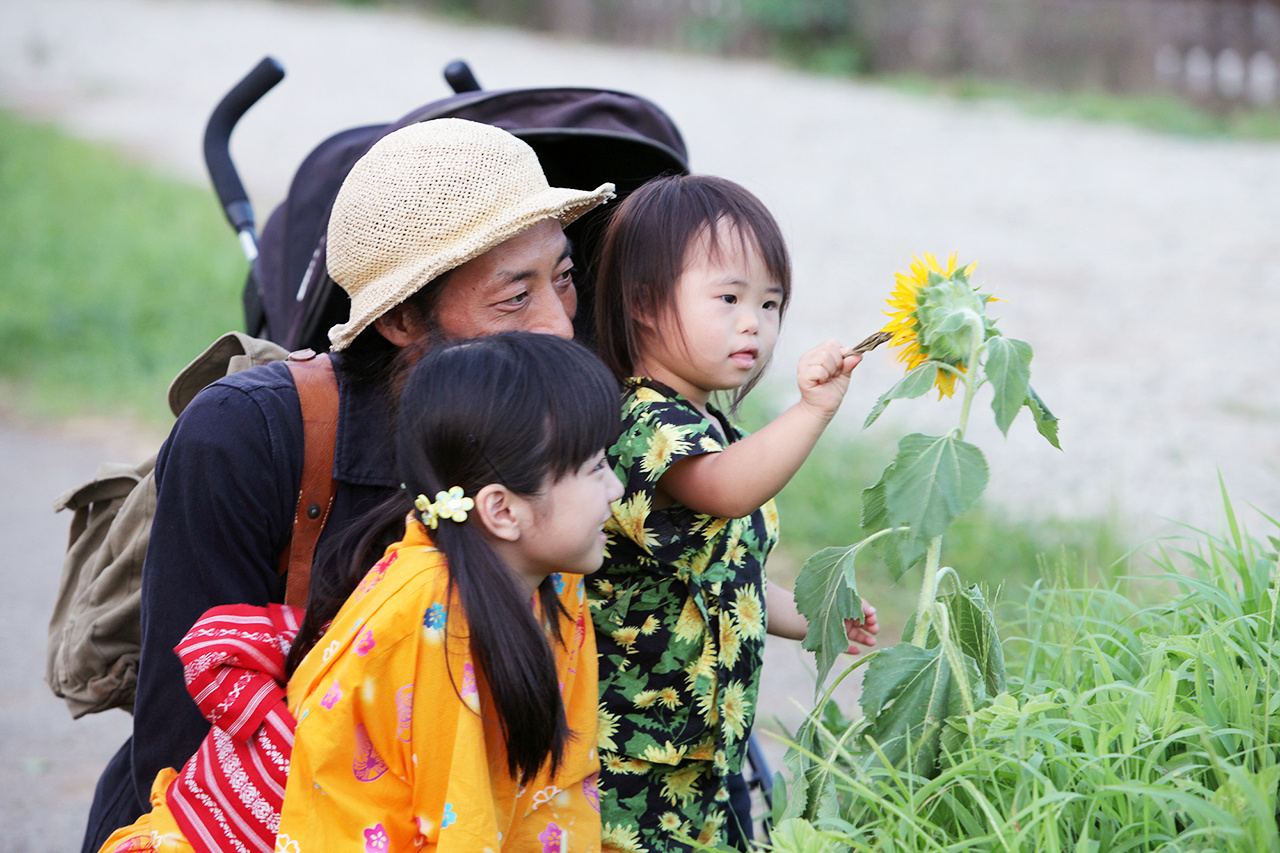Mitsuo suffered debilitating mental trauma after volunteering to clear out the debris in the wake of the Great East Japan Earthquake and Tsunami. After spending three years at a psychiatric care facility, he is released and warmly welcomed back by his younger brother Yuta, his wife Yoko, and their daughters Chie and Itsuki who has down syndrome. However, the sweet family reunion is shattered by a tragedy when the two girls are left in Mitsuo’s care during which Itsuki accidentally dies. Thus begins a spiral of blame and guilt which pits family members against one another with Mitsuo and Chie caught in the middle.
The debut independent feature by Takeuchi Yosuke throws into relief many of Japan’s unspoken attitudes toward the mentally ill and mentally disabled. In fact, Takeuchi decided to make the movie in response to how he saw his own niece, Takeuchi Ichika who plays Itsuki in the movie, was being treated both within closer circles and society at large. Therefore Takeuchi makes sure those those unspoken attitudes are heard loud and clear, serving as the catalyst for the characters’ conflicts while raising strong social commentary. However, the movie never loses sight of the traumatizing aftermath guilt and silence have on Mitsuo and Chie. It’s no coincidence Mitsuo bears a resemblance to the tormented artist Vincent van Gogh and the thematic symbol of the story is the sunflower. Sunflowers were planted by farmers and volunteers throughout Fukushima Prefecture in an attempt to help the soil absorb radiation leaked from the nuclear power plant damaged by the tsunami. As the titular “sower”, Mitsuo wants to believe in the sunflower’s power to overcome tragedy, and Chie looks upon them as the beauty that can bloom afterward.

